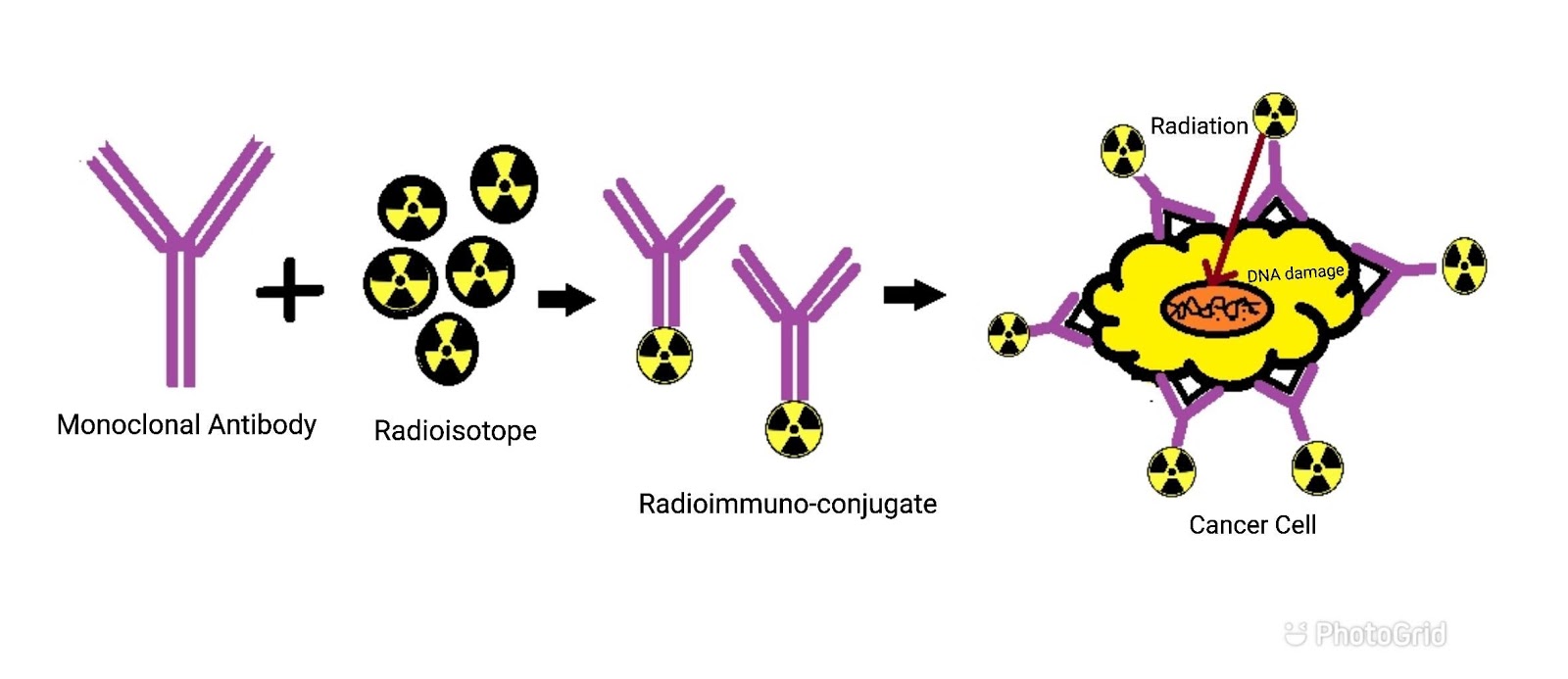
Radioimmunotherapy: A Target Specific Therapy For Cancer
Biotechnology has made a significant contribution towards public health care requirements, since its existence. It offers efficient diagnostic, preventive, and therapeutic applications and has introduced modern medical gadgets, such as diagnostic and prevention trial kits, vaccines, and radiolabel biological therapies.
How does Radioimmunotherapy work?
Radioimmunotherapy (RIT) uses monoclonal antibodies to target antigenic cells present in the body, associated with tumors particularly, with selective radiation therapy. This method is an amalgam of immunotherapy and radiation therapy. This technique employs radionuclides attached to tumor-oriented monoclonal antibodies to target the antigenic cell. The targeted tumor cells are killed using a lethal dose of radiation, the advantage of this technique is that it minimizes the radiation exposure by other normal body cells.
How do Antibodies help in the process?
Antibodies are the proteins created by the B plasma cells of the body. The antibodies are the main component of the body’s immune system that protects the body from any potentially harmful foreign matter, such as viruses or microorganisms. These antibodies have therapeutic cytotoxic potential against some malignant tumor cells, but these antibodies are not sufficient to enhance the survival rate of the patient. A monoclonal antibody is a laboratory-produced molecule designed by hybridoma technology to identify and bind on the cancer cell surface. The monoclonal antibodies imitate the natural antibodies of the immune system.
Radiation Therapy and its impact on curing Cancer
Radiation therapy is a kind of cancer therapy that uses energy-intensive beams to kill cancer cells or shrink the tumor but is associated with severe side effects. So this technique employs anticancer drugs or monoclonal antibodies coupled with cytotoxic radioisotopes to improve the treatment response through target-specific action. The radioisotopes coupled with monoclonal antibodies are also known as radiotracers. When the radioisotope attached monoclonal antibody is injected into the bloodstream it travels to the cancer cells and directly delivers a high dosage of radiation to the tumor. Yttrium-90 Ibritumomab Tiuxetan (Zevalin) and Iodine-131 Tositumomab (Bexxar) are two successful examples of anti-CD20 monoclonal antibodies coupled to cytotoxic radioisotopes. Several novel radioimmuno therapeutic agents are being developed. The therapy of prostate cancer, melanoma, ovarian cancer, leukemia, high-grade brain glioma, and colorectal cancer are possible applications for the RIT. In particular, in hematological tumors, RIT has proved successful. Antibody-based targeted radiation is seen as a mediator of direct cytotoxic effects on cancer cells. RIT provides safe and effective cancer therapy possibilities. In the future, cancer treatment should be supported by the development of new antibody coupled radioisotope treatments as well as by combining it with other approaches.
Written By:- Sanchita Mitra, Biotechnology student, Manav Rachna International Institute of Research and Studies (MRIIRS)





